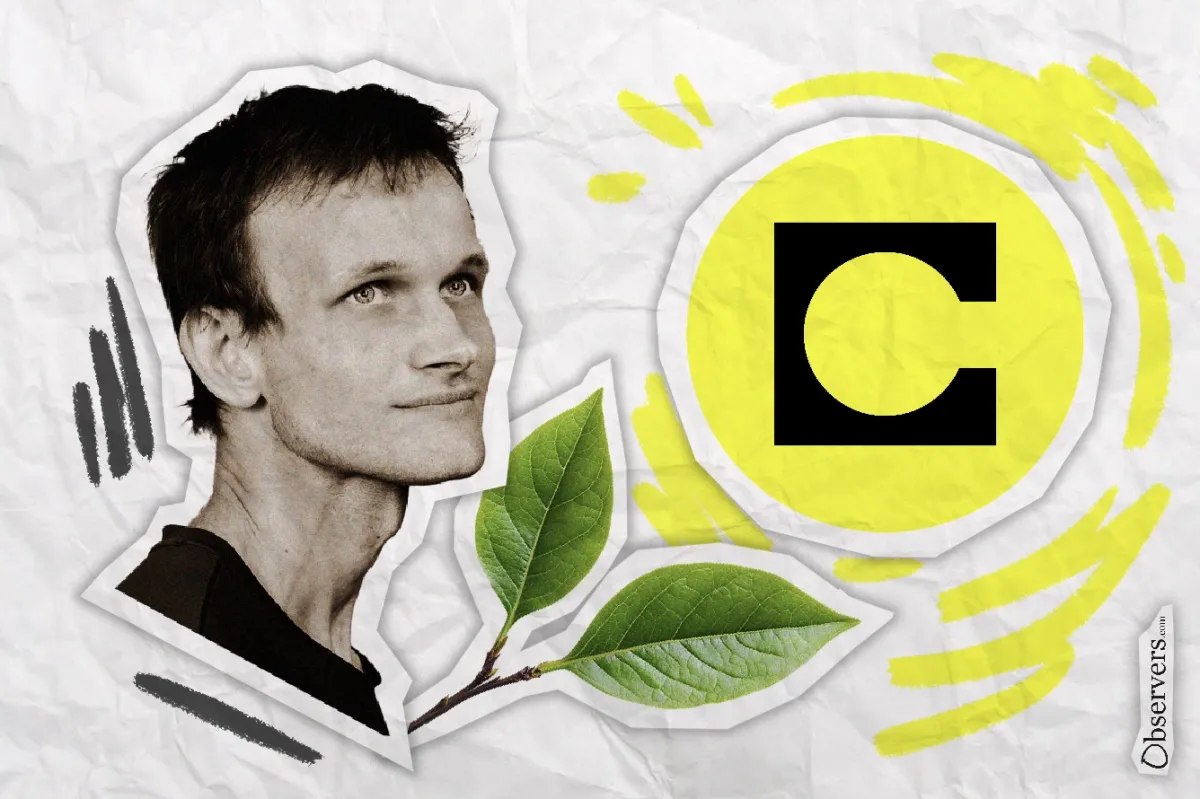
Since May 2023, Celo protocol has purchased 733,36 tones of carbon under the Ultragreen Money initiative, making it a net emission-negative network by over 6,8 hundred tones of CO2.
The regenerative finance (ReFi) focused mobile-first protocol is a carbon-negative blockchain environment where projects develop ambitious sustainability Dapps that leverage DeFi to create new or reimagine old natural assets.
As DeFi takes a deep look at itself, following Vitalik Buterin’s finger-pointing at projects “whose attractiveness comes from some temporary source that has no sustainability,” Celo stands out as an ecosystem that’s putting a lot of effort into supporting dApps with clear and sustainable use cases that align with the principles on which Ethereum was founded.
Celo’s Recent Growth
In recent months, activity in the network has surged. Since the network celebrated its fourth anniversary on April 22, International Earth Day, active addresses have exploded from 73,000 to over 500 thousand today. Since July, transactions have surpassed one million almost every day—the average in 2022 was less than half a million.
The growing interest in the network is partly due to its steps towards becoming an Ethereum layer-two solution from its current EVM-compatible standalone layer-one state.
The move is expected to enhance “opportunities for open-source contributions, joint initiatives, and the development of public goods” while eliminating the need for bridges and, therefore, making the network safer.
The developing team spent the first eight months after the transition announcement evaluating which stack to use, finally deciding on Optimism’s OP stack last April.
In early July, the L2 testnet, Dango, was launched, allowing developers to start preparing for the migration.
Ultragreen Money Initiative
The Ultragreen Money initiative was launched in April 2023 along with the network’s Gingerbread Hardfork. With it, 20% of every transaction fee started being allocated to the Celo Carbon Offsetting Fund for the purchase of carbon-offsetting products.
Since May 2023, Celo has purchased 733.36 tonnes of carbon, most from the off-chain carbon offsetting platform Wren.
Earlier this year, the fund’s revised proposal set a target of 60% of the money being used on-chain, helping to grow climate change-focused blockchain projects.
One of the leading sustainability-focused projects on Celo, the Toucan Protocol, is a beneficiary of the protocol’s Carbon Offsetting Fund. The collaboration between the fund and the dApps has led to the launch of Toucan’s first nature-based token, #CHAR.
Before the fund was established, Celo was already committed to being carbon-negative and offsetting its footprint. Overall, the platform has polluted 284 tons of CO2 while offsetting a total of 6,804 tons of CO2 since 2020, making its lifetime net carbon footprint negative for 6,557 tons.
Celo’s Commitment With ReFi
I would love to see a story for where the yield is coming from or could come from, that’s rooted in something external,” said Buterin on X.
On Celo, there are several stories like that.
Toucan Protocol is the first-ever liquidity market for biochar credits (biochar is a carbon-sequestration organic material).
EthicHub is a financing platform that connects small farmers from developing economies in need of financing with small-scale investors. You can start investing with as little as 20€.
The stablecoin GloDollar generates basic income through user fees for people in extreme poverty.
There are many other projects on Celo that, like the three mentioned above, are leveraging DeFi to bring about a sustainability-finance revolution based on the principles of regenerative finance.
There are also many projects on the ecosystem criticized by Buterin in which money circulates between users without the source of the yield being understood or known.
However, Celo’s commitment to environmental causes certainly attracts the type of projects that could, at least, be on the short-list for the Buterin seal of approval.

